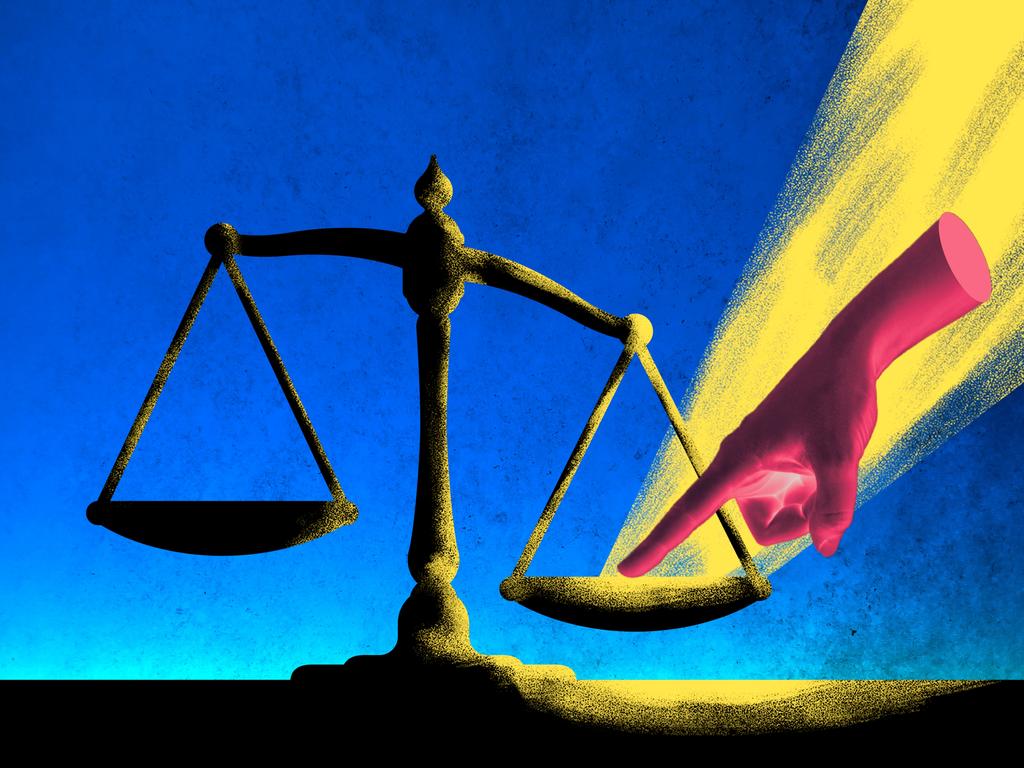Female jurists, closed hearings: new guidelines for NSW judges handling cases involving Aboriginal Australians
NSW judges should consider allowing cases involving Aboriginal Australians to be heard in a closed court or before a female judicial officer in order to enhance ‘cultural safety’, new provisions say.

Judges in the nation’s largest criminal jurisdiction should consider allowing cases involving Aboriginal Australians to be heard in a closed court or before a female judicial officer in order to enhance “cultural safety”, according to provisions inserted into a NSW bench book.
The Equality Before the Law bench book, which was compiled by the state’s judicial watchdog and acts as an overview of legal procedure for judges, instructs judicial officers to be wary of their own unconscious racial and cultural biases when presiding over trials that involve Indigenous people.
It also notes “cultural wounds” suffered by Aboriginal Australians due to intergenerational trauma, and says they are best treated with “cultural medicines”.
“It is important to obtain advice from cultural consultants and the defence regarding culturally appropriate aspects of the hearing, and whether it might be more respectful (and effective) to have, for example, a closed hearing, or a female judicial officer, or to limit access to information based on gender (depending on the hearing context),” the amendments to the bench book, inserted in April, say.
“It is also important to be aware of the impact of possible unconscious racial and cultural biases and racial profiling: judicial officers, like most people, are not immune to holding implicit and unconscious biases despite their best efforts.”
The April amendments to the NSW Equality Before the Law bench book also include a “more extensive explanation of the Islamic teaching of jihad” in order to “provide greater understanding of the Muslim tradition of anti-violence”.
The book has also been amended to include the removal of the term “transsexual” unless required – with preference for language such as “transgender”.
Suggestions have been added for how to adjust the legal process for people diagnosed with autism, such as by giving “explicit and clear explanation of the hearing procedure, including length and timing of breaks”.
The new provisions note in relation to Aboriginal Australians that if “different cultural norms and life experiences have influenced the matter before the court” judges should consider whether “the law allows those influences to be taken into account in the legal proceedings”.
“The issue should be directly, but respectfully, addressed irrespective of whether those cultural or religious norms are different from the Australian legal context,” the bench book says. “Disconnection from culture, family and community has resulted in community and individual deficits for First Nations people. Connection to culture and the experience of cultural safety promotes wellbeing, rehabilitation and healing.”
The amendments are similar to provisions in Queensland’s Equality Treatment manual, which recognises the impact of colonisation on Aboriginal communities.
“The history of colonialist domination remains tangibly recent and cannot simply be ignored, as it continues to affect the cohesiveness and identity of Aboriginal and Torres Strait Islander communities, as well as their relations with the broader Queensland society,” the Queensland bench book says.
The West Australian Equal Justice bench book recognises many Aboriginal people “coming into contact with the courts and the justice system experience a variety of complex social and economic disadvantages stemming from colonisation, dispossession and past government policies such as the stolen generations”.
The NSW bench book amendments recognise the importance of “cultural safety” in the legal system, noting processes can ignore Indigenous perspectives and cause more harm.
“The impacts of historic actions disrupting First Nations culture and resultant intergenerational trauma have been conceptualised as ‘cultural wounds’, which are best treated with ‘cultural medicines’,” the bench book says.
“The individual impacts of intergenerational and systemic problems are best addressed via systemic and community-level interventions, parallel to individualised approaches.”
The book says any system “lacking cultural humility often creates further difficulty and negative experiences causing further harm, particularly custody settings”.
“This disproportionately affects vulnerable groups and creates significant impacts on children and families,” it says.
“Standard legal and government agency processes can (at their worst) ignore First Nations perspectives and create further harm by replication and inadvertent re-enactment of past intergenerational traumas. If cultural safety is ignored, it can undermine safety and rehabilitation goals.”
The changes to the bench book come amid reporting in The Australian of concerns held by law school students, academics and deans that political ideology is infiltrating universities.
Macquarie University earlier this year ordered a review of its law school practices after students said their course had become hijacked by beliefs that were damaging to their education, with some facing the threat of failing one part of an exam if they performed an underwhelming acknowledgment of country.







To join the conversation, please log in. Don't have an account? Register
Join the conversation, you are commenting as Logout